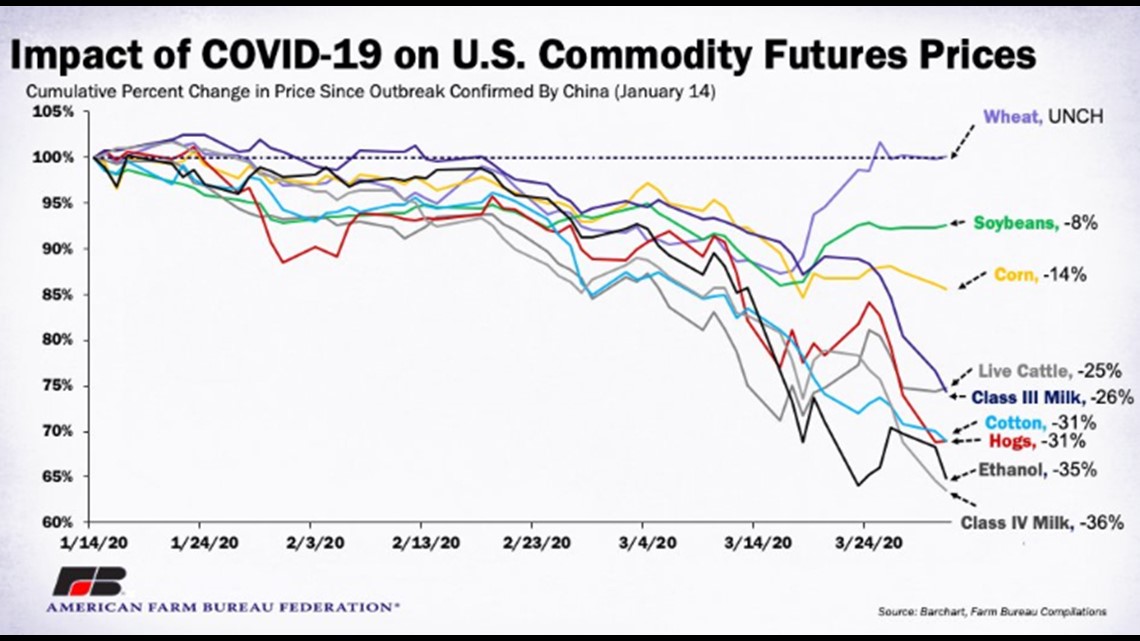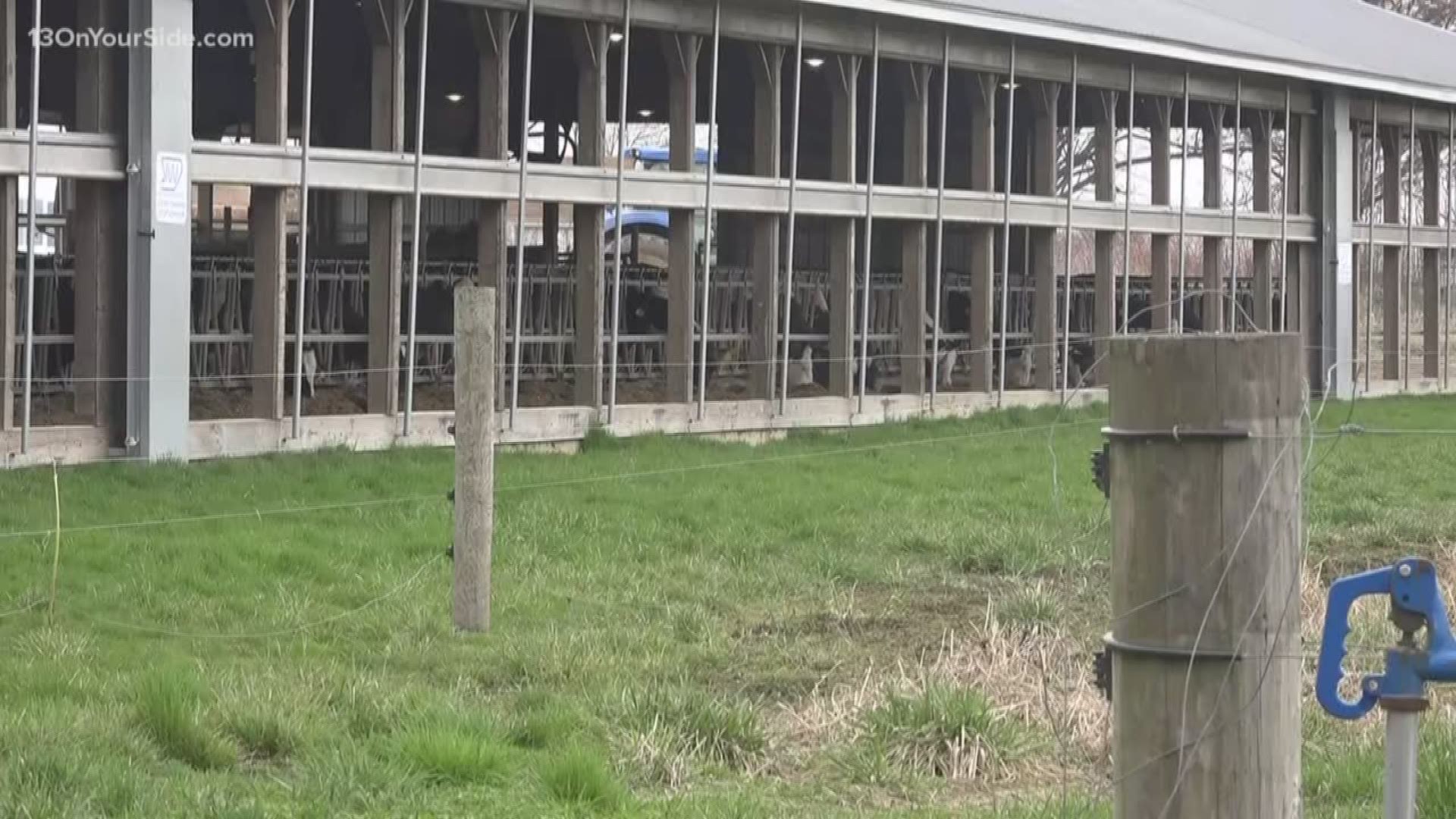OTTAWA COUNTY, Mich. — Local farmers are looking at devastating losses in revenue, as the novel coronavirus clouds the industry with uncertainty.
After a year plagued by severe weather, West Michigan farmers were ready to bounce back. For dairy producers, 2020 was the light at the end of the tunnel, said Paul Windemuller, owner of Dream Winds Dairy in Polktown Township.
"The last five years there have been low prices, and this was the year we were hopefully going to make it up," Windemuller said.
The pandemic has tanked milk prices by 26-36%, said Ernie Birchmeier, livestock and dairy specialist at the Michigan Farm Bureau.
The negative impact of farm commodity prices is due to uncertainty, some labor issues and a demand shift," Birchmeier said. "It's not one singular issue that's caused the impact."
Part of the price drop is because some of the main buyers of milk, including schools and restaurants, suddenly shuttered, he said.
"We got a letter yesterday from our co-op telling us to be prepared in case [we have] to start dumping milk," Windemuller said. "There have been a lot of cheese and butter manufacturing plants that have either downsized their orders or closed."


Despite a surge in demand for beef, prices paid to cattle farmers have dropped by 25 percent, according to the Michigan Farm Bureau.
"Selling out of the freezer's been great, but the rest of what we sell...on the market has been hard," said Tracee Geurink, who co-owns Maple Hill Beef Farm in Olive Township. "We don't really know where we're going to do with the normal 30-40 cows we [were] going to sell."
Farmers are expected to receive some relief from the federal government. The recently-passed CARES Act allocated $9.5 billion to farmers and ranchers hit by the pandemic.
"We're working with [the USDA] to make sure it gets utilized properly, so it can be most effective and most efficient for our farmers," Birchmeier said.
Cows don't stop producing, so there's not much dairy farmers can do, Windemuller said.
"Our costs haven't changed at all; we still have to keep going," he said. "It doesn't really matter what size you are, large or small, we're all hit about the same by this whole ordeal."
Farmers will continue producing, ensuring Michiganders have food on their tables, Birchmeier said.
"They're working diligently on a daily basis to provide what [consumers] need," he said. "But we are concerned about the economic impact about this. It may cause some farms to go out of business. That is a legitimate concern."
More COVID-19 stories:
RELATED VIDEO:
►Make it easy to keep up to date with more stories like this. Download the 13 ON YOUR SIDE app now.
Have a news tip? Email news@13onyourside.com, visit our Facebook page or Twitter. Subscribe to our YouTube channel.


